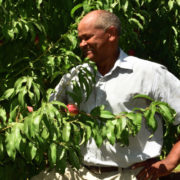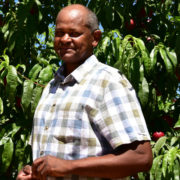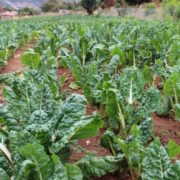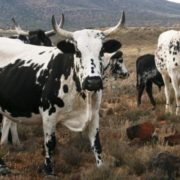by Lionesses of Africa Operations Department
“People want to know that the person leading their [company] is tough enough to bring them through, but they also want to see that the leader gets it, understands how anxious, confused and worried about the future they are.”
…from the great book ‘Women and Leadership: Real Lives, Real Lessons’ by former Australian Prime Minister Julia Gillard and Ngozi Okonjo-Iweala, Head of the WTO, and exactly captures what we as leaders need to show in the coming months (possibly year) as events across the globe, inflation, possible Stagflation as we discussed (here) and especially the war in Ukraine and supply chain disruptions, continue to impact our countries and communities.
Prices of all goods and especially food heading skyward is never fun but especially for our employees, many of whom support their families and communities. The pain will just continue to get far worse before it gets better, not least because with western central banks raising interest rates aggressively, the days of cheap money that could be put to work investing in Africa are gone. This will impact our employees and our communities like never before and if this inflation combined with a lack of external investment starts to slow economies (which is highly possible probable), so companies will start to go bust which in turn will impact further. There are major structural defects in our business world that the supply chains of three years ago plus high tide of large amounts of cash from low interest rates hid – now the tide is going out (as supply chains clog and interest rates rise), so it is getting tougher and tougher. This is real and it is happening now.
As Cornell University economics professor Chris Barrett states (here): “It’s kind of a perfect storm. It’s not just a matter of food prices are going high. It’s food prices are going high at a moment when many places are already crippled by the challenges posed by COVID, by political disruptions elsewhere, by droughts and floods and other natural disasters…And there’s only so much that people can take before they grow displeased with their political leadership if it’s failing to take care of them. So, unrest is, unfortunately, increasingly likely right now.“
…and indeed not only is there a high correlation between unemployment and especial youth unemployment and unrest, there is also a very high correlation between high food prices and unrest, (see our previous article here).
In that article we also highlighted the US’s inverted yield curve and explained what this meant (higher interest rates ahead) and ended by saying “Now is the time for Lionesses to show strong leadership, their usual high levels of empathy and the foresight that whilst hoping for the best, we prepare for the worst.”
– Easy to say, but how can we do that in practice?
Over the past few weeks we have been looking at some of the great male business leaders of our time and we recognised that if we put these leaders on a pedestal then it is no surprise if business and investment decisions are made with a ‘strong pale male’ benchmark in mind. It is not a shock therefore when businesswomen force themselves into being something that the market and investors expect – a carbon copy of Steve Jobs (but in a skirt), completely missing the point that the strengths (including Empathy) that these incredible businesswomen bring to the table are exactly what is making them successful, allowing them to break into their particular markets and solve incredibly difficult problems.
As Jacinda Arden, New Zealand’s PM said in an interview with the NY Times (here): “One of the criticisms I have had over the years is that I am not aggressive enough or assertive enough, or maybe because I am empathetic, it means I am weak. I totally rebel against that. I refuse to believe that you cannot be both compassionate and strong.”
With that in mind, perhaps finding a bit of your inner Steve or Elon, might not be such a bad thing…As usual, everything in balance – please, this is some heavy duty personality you are bringing on board!
Ben Horowitz gets us ready for this in his brilliant book called: ‘The Hard Thing about Hard Things’: “There may be nothing scarier in business than facing an existential threat.” Indeed. So often we try to pretend that certain threats are not real, it won’t impact us, it’ll hit other industries, and so on…
But are you really ready to roll the dice on this one?
If you do happen to get hit hard by any of these hurricane force issues, then the first thing you will find as Ben says (and he calls it “the best CEO advice ever”):
“…NOBODY CARES.
When things go wrong in your company, nobody cares. The media don’t care, your investors don’t care, your board doesn’t care, your employees don’t care, and even your mama doesn’t care. Nobody cares. And they are right not to care. A great reason for failing won’t preserve one dollar for your investors, won’t save one employee’s job, or get you one new customer. It especially won’t make you feel one bit better when you shut down your company and declare bankruptcy. All the mental energy you use to elaborate your misery would be far better used trying to find the one seemingly impossible way out of your current mess. Spend zero time on what you could have done, and devote all of your time on what you might do. Because in the end, nobody cares; just run your company.”
Wow – that hit right between the eyes!
When there are ‘existential threats’, Ben looks to leaders such as Steve and Elon calling them ‘wartime leaders’. So what is the difference between a wartime and peacetime leader?
Peacetime CEO
Wartime CEO
Culture
CEO defines Culture
The war defines the culture
Structure and Protocol
Follows this
Blasts this apart to win
Large Advantage?
CEO knows what to do to push any advantage.
CEO is paranoid and assumes this is just luck or a one off.
Current business opportunities?
‘Broadens through encouraging creativity and contributions across a diverse set of objectives.’
‘Generally the company has a single bullet, which must at all costs hit the target.’
Detail
Can allow teams to grow through learning from mistakes.
‘Cares about a speck of dust on a gnat’s arse if it interferes with the prime objective.’
Position
Behind the lines directing his teams and troops.
In front and leading.
…well there goes any thoughts you had of taking the occasional weekend off! But seriously, that covers the decision making we have to do and the focus required, but central to all of our businesses are our people and as this worsens, so they will suffer, worry and look for leadership. They will start to run on empty as the weight of their responsibilities become too large and your company will become their last refuge, perhaps their last hope as they look for some stability.
This is visualized best through the truly impactful 78 funnels of Pavlo Makov, Ukraine’s famous artist. These funnels are mounted in such a way that an initial stream of water into the top funnel divides into 2 funnels, then into 3, into 4 and again and again increasing as it moves towards the floor. As it makes its way down the triangular arrangement, its flow weakens until eventually there are just single small drops of water out of each funnel as it reaches the bottom. This is aptly called ‘The Fountain of Exhaustion’ and can be seen here.
Our employees will start (if they are not already) feeling this exhaustion from the worries that start to mount up about home, family, community and of course as businesses struggle, whether your business will even survive. This is where your leadership comes into its own. While you are making the tough decisions as a ‘War Leader’, recognize that many employees will have no idea what you are doing or why you have made such decisions. Although each and every decision cannot be explained, discussing the overall strategy and direction of the business as you navigate the rocks that are now coming to the surface as the tide goes out will be essential.
Communication is key.
With no apologies for our late night reading material, we came across the definition of Stress from a paper by Achim Peters, Bruce S.McEwen and Karl Friston in Science Direct (here):
“…the essence of stress; [is] uncertainty…What is uncertainty? What does it do to us? What are our resources to master it? Mathematically speaking, uncertainty is entropy or ‘expected surprise’. The ‘free energy principle’ rests upon the fact that self-organizing biological agents resist a tendency to disorder and must therefore minimize the entropy of their sensory states. [Yup – we didn’t understand that either] Applied to our everyday life, this means that we feel uncertain, when we anticipate that outcomes will turn out to be something other than expected – and that we are unable to avoid surprise.”
So there you have it, uncertainty breeds stress and the more uncertain issues or ‘funnels’ each of us have, so the less energy or ‘water’ we have to fight this, hence the ‘exhaustion’.
Of course this also applies to us as well, our businesses will collapse if we as leaders overload, as Melanie wrote this week (here):
“I was reading through my morning news recently when an article on managing entrepreneur stress caught my attention. It quoted the famous saying, “You can’t pour from an empty cup,” meaning that when we get really stressed and are heading for burnout, we are not helping ourselves, our businesses, or our employees. As hard as it is right now, trying to keep our businesses going through these tough times, taking care of ourselves is also imperative. It is essential to dedicate time to ensuring we stay healthy, calm, energized and focused. We will need all of these attributes to get us through this situation. So, no matter how much work there is to do, how many challenges you are dealing with, you need to also recharge yourself at the end of each day. Remember that as an empty cup, you are no use to anyone. You have a responsibility to yourself, the business and your employees, to manage your stress levels and take care of yourself. The calmer you are, the better you will be able to make the necessary decisions to steer your business forward into the future.”
Amen to that.
Stay safe.



















